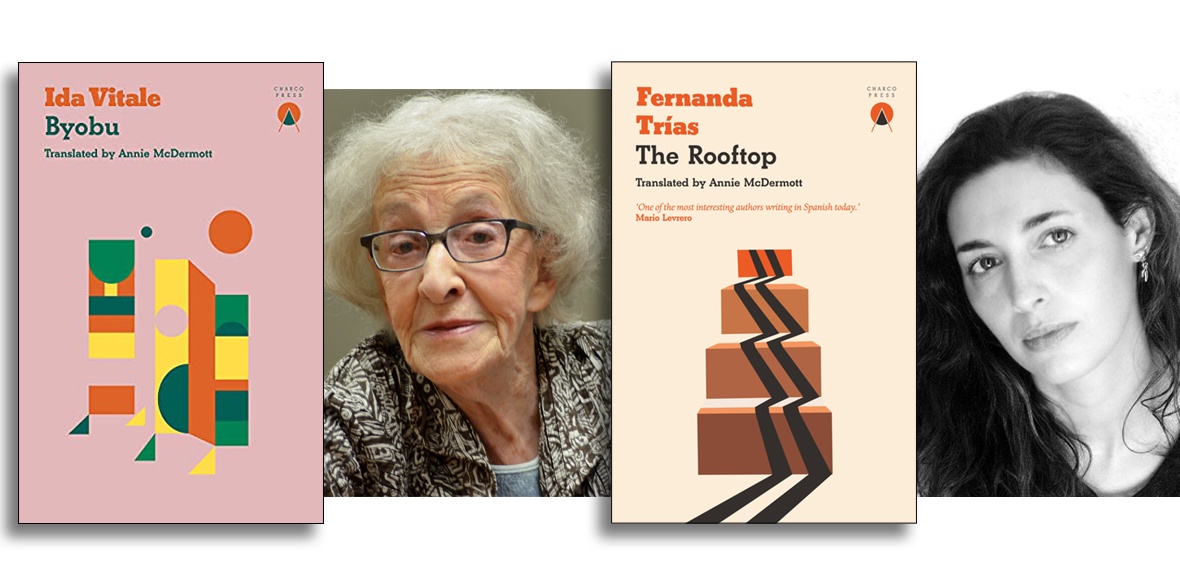This is the last article you can read this month
You can read more article this month
You can read more articles this month
Sorry your limit is up for this month
Reset on:
Please help support the Morning Star by subscribing here
BYOBU (Charco Press, £9.99) is a puzzling book by the Uruguayan poet Ida Vitale (b1923), a member of the acclaimed Generation of ’45 and winner of one the most important literary distinctions in the Spanish language, the Cervantes Prize.
It is Vitale’s first book of prose to be published in English and has been superbly translated by Sean Manning. It could be read as an experimental novel, an essayistic notebook or as a series of concatenated aphorisms.
But it is also a book of poetry written in prose, where the main character, the elusive Byobu, navigates a tantalising world woven through by many strange and playful stories.
“We are used to feeling part of a harmonious, albeit human, whole. We enjoy uniqueness, but sometimes it can be startling. Byobu, who finds himself in a bus riding among a group of completely uninhibited deaf travellers, boisterous in their body language, realises that he is the dissonant one,” writes the author in the story Deaf Indiscretions.
Each individual story is somehow connected with the others in the book by a language that is rich in lyricisms and metaphors, one that functions as a portal into the poetic universe of the author.
The protagonist serves as a guide and a bridge to a poetic essay on the minimal and useless things, behind or below or above which the vital ones flow.
In Byobu, Barely Corpuscule: “Horns, voices, strange vibrations are heard, the air arrives laden with similarities. ‘What’s going on?’ asks Byobu. ‘Nothing,’ they answer. ‘What could be going on?’ ’What would you like to be going on?’ Byobu decreases the receptivity of his hearing, so as not to be less.”
In his epiphanic journey there is a sensitive toad, viscachas – a kind of groundhog that inhabits the pampas of Paraguay and Argentina – as well as earthworms, chrysanthemums and crossroads.
At times the book reads as too fragmentary and aloof – especially towards the end in the Original Thoughts section – but it remains a perplexing experiment. A fascinating glimpse into the poet’s intricate world.
The Rooftop (Charco Press, £9,99) was also written by an Uruguayan author, but from a much younger generation Fernanda Trias (b. 1976). She belongs to a group of contemporary female Latin American authors such as the Chilean Lina Meruane, the Argentines Mariana Enriquez and Samantha Schweblin and the Bolivian Liliana Colanzi, who create ambiances of horror and suspense in order to critique contemporary society, and subvert the roles of women and children in contemporary society.
The novel, beautifully translated into English by Annie McDermott, was originally published in 2001 in the midst of the worst social, political and economic devastation in Uruguay caused by the neoliberal politics of Julio Maria Sanguinetti.
It tells the story of a young protagonist living with her ailing dad, her young daughter Flor and a caged bird in an oppressive apartment surrounded by all kinds of menaces.
“Now, with nothing left to do but look back, I don’t think there was ever a beginning, just one long ending that devoured us bit by bit. If I’m remembering all this tonight, it’s only because I want a little more time with them.
“No one could possibly understand how I feel: isolated, expecting nothing, knowing I’m locked in a desperate battle to defend something that’s already gone.” Thus the protagonist begins her harrowing story of confinement, incest, parricide, infanticide and social paranoia, where the roles of the good mother, daughter and citizen are subverted with devastating effects.
Trias has created a world where all social norms and conventions disintegrate, where a helpful neighbour turns into a spy and the rooftop of an urban building serves as the only escape from a crumbling world.
A chilling tour-de-force by one of the most exciting and subversive voices writing today in Latin America.











